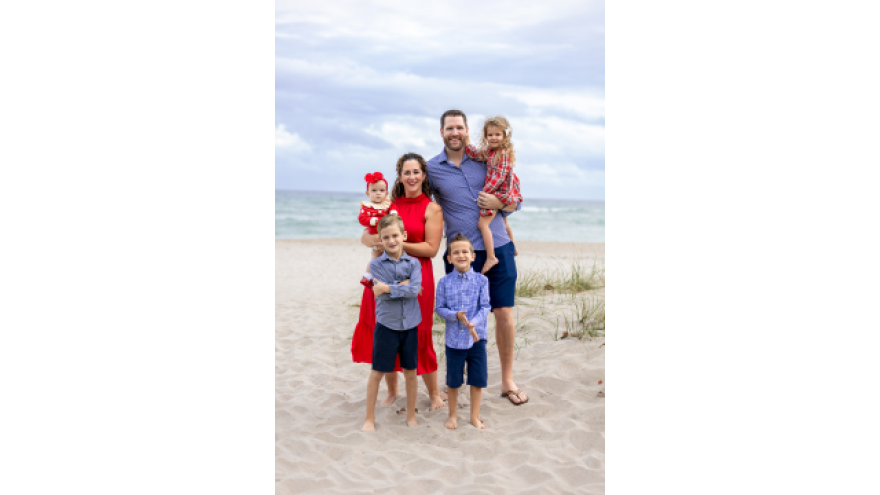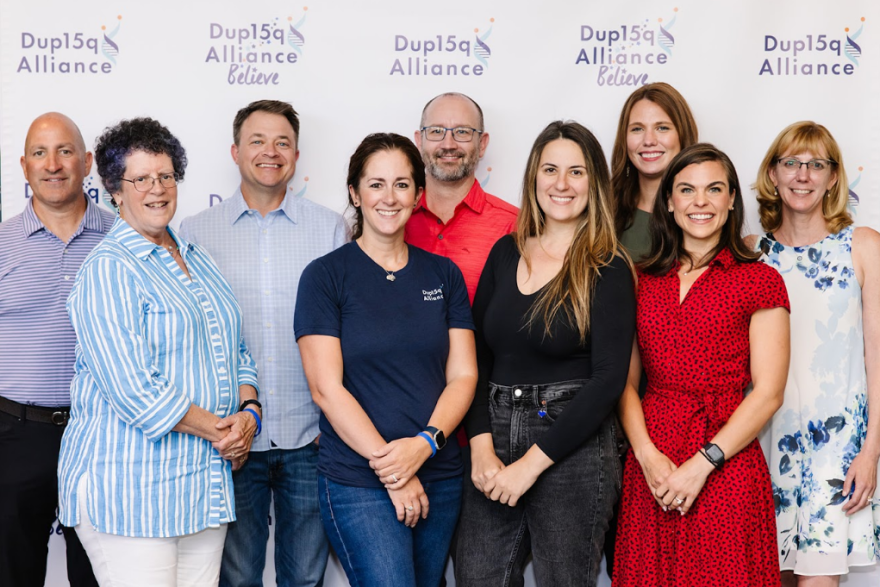ALLENTOWN, Pa. — An international organization is raising awareness about a rare genetic condition that affects 1 in every 5,000 to 20,000.
It’s called Dup15q and the alliance supporting families and research about the condition is observing 30 years.
Dup15q syndrome, short for chromosome 15q11.2-13.1 duplication syndrome, is caused by having an extra piece of the 15th chromosome.
It can cause people to be born with or develop intellectual disabilities, autism spectrum disorder and epilepsy.
"There are some kids who are considered somewhat mildly affected and then there's kids that are severely affected. But in almost 100 percent of the cases, children have autism. They have a development delay or an intellectual disability."Jackie Vanderhoof, a Dup15Q Alliance board member
"Everybody has 46 chromosomes," said Jackie Vanderhoof, a Dup15Q Alliance board member. "If you have too little or you have too many pieces of those chromosomes, it just causes all sorts of genetic issues in a lot of cases.
“So for these kiddos, they have just an extra piece of the 15th chromosome which adds extra genes to their cells."
Vanderhoof, who also is the Alliance’s science committee co-chairwoman, has four young children, including 3-year-old Fiona, who has the condition.
Vanderhoof, of Montgomery County, said the condition impacts people around the globe, including a family in Allentown.

"There are some kids who are considered somewhat mildly affected and then there's kids that are severely affected. But in almost 100 percent of the cases, children have autism," she said.
"They have a development delay or an intellectual disability. Eighty percent of those kids have severe seizures, and having seizures is usually an indicator of how severely affected a child will be.
"So those seizures really just kind of wreak havoc on the brain."
Fiona Vanderhoof suffers from the latter.
'Wide range of really serious issues'
Fiona's mother said symptoms can vary.
"GI issues, and then they have a whole host of behavior problems," she said. "And that's kind of associated with autism, but then others are part of the genetic disorder.
"So they'll have ADHD, they may have kind of manic episodes like psychosis in some cases. So really just a pretty wide range of really serious issues for the kids.”
"Fiona's superpower is that she's very social," she said. "So she loves people. She's seeks them out.”Jackie Vanderhoof, a Dup15Q Alliance board member
Vanderhoof said children with Dup15q also have trouble sleeping.
“Which is difficult for mom, dad, brother, sister, everybody,” the mother said.
She said food restrictions to help reduce the number of seizures are a frustration for the 3-year-old, especially when growing up with siblings who may not have to follow the same rules.
The condition makes it hard for many of the children to lead normal lives, but Vanderhoof said it’s not impossible. Her daughter attends school and enjoys playing with other children, she said.

"Fiona's superpower is that she's very social," she said. "So she loves people. She's seeks them out.”
However, her daughter’s balance can get in the way of her socializing, she said. Fiona falls up to 25 times per day in class.
“She has hypotonia ... really severe low tone," she said. "And so what that means is like you and I can just sit up in a chair without thinking about it. ... that's like your tone is doing that your muscles are unconsciously neurologically.
"She's not able to like sit up, so she actively has to tell herself to walk or stand or sit up. So because of that, she falls a lot in the classroom."
'I hope and I pray'
As with many who suffer from Dup15q, Fiona is on medication, but there is no cure. The medication also can stop working and the patient can become wheelchair-bound and tube-fed.
According to the Dup15q Alliance, the condition also can be life-threatening, especially in those who suffer from seizures. Many of the children who die from it do so as teenagers in their sleep.
“I do think that there will be a genetic-based therapy in Fiona's lifetime and so if I can help move that forward, I'll do everything in my power to do that."Jackie Vanderhoof, a Dup15Q Alliance board member
Vandehoof said the goal is to raise awareness, which coincides with observing the Alliance’s 30th anniversary. That will help to find better resources to improve the quality of life for those who have it.
"I hope and I pray,” Vanderhoof said. “I do think that there will be a genetic-based therapy in Fiona's lifetime and so if I can help move that forward, I'll do everything in my power to do that."

The Dup15q Alliance serves families across the United States and throughout the world. There are currently 17 clinics to serve families living with Dup15q, with one in Lewisburg, Union County, and another in Philadelphia.
It also provides an array of support programs both in-person and online for those in need.
“We have 2,200 people and we do both research and then also like family support," Vanderhoof said. "So we have family support zoom calls, we have regional gatherings.”
Those interested in learning more can go to the Dup15q Alliance website.


